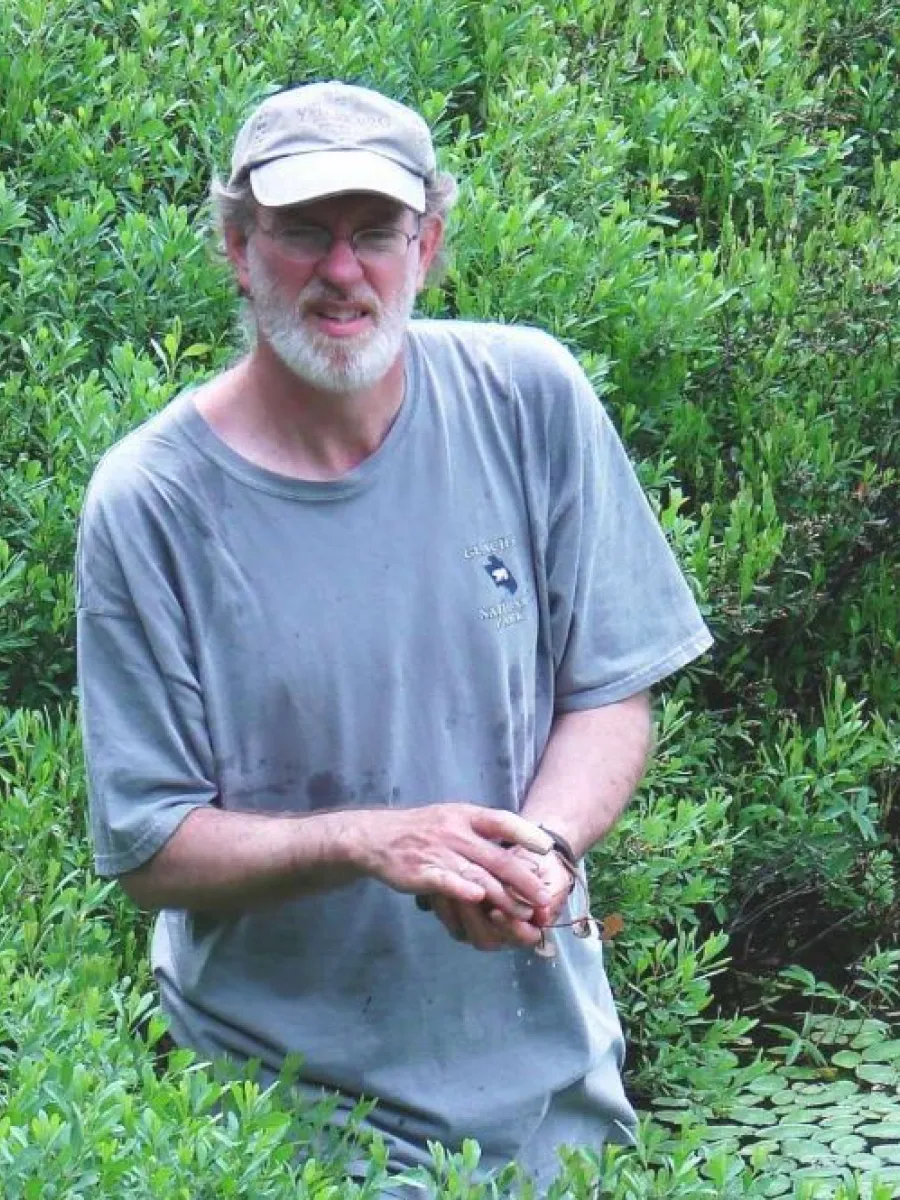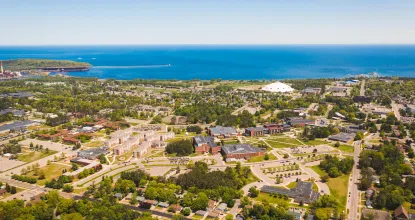Alan J. Rebertus
Professor
Contact Information:
2005 Weston Hall
Phone (906) 227-2351
Email: arebertu@nmu.edu
Education:
University of Minnesota, B.S. (Biology) 1980
Louisiana State University, M.S. (Wildlife) 1982
Louisiana State University, Ph.D. (Botany) 1988
University of Colorado, Post-Doctoral Research Fellow 1988-91
Research Interests:
I am especially interested in the roles of disturbances (fire and wind) and large mammals on boreal community and landscape dynamics. My recent work has focused on the effects of [under] ground fires on carbon loss, plant mortality, and succession (VanDeMark, Meier); seasonal effects of fire on groundflora (McKenzie); tree-ring histories of Native American burning habits (B. Torretti); landscape perspective of moose browsing impacts on Isle Royale (Gorkiewicz); a long-term caribou exclosure experiment in Canada (Kingston, Jordan); and the influence of beaver impoundments and canals on peatlands (L. Torretti), fish communities, and aquatic plant succession (Ray & Ray). My other area of current research (in collaboration with NPS, Leutscher) concerns the biology and conservation of several endangered/threatened plant species of the Grand Sable Dunes, including calypso and ram’s head ladyslipper (Bozic) and Pitcher’s thistle (Hardenbrook).
Teaching:
BI 112 Introductory Biology-Diversity
BI 412 Biometrics
BI 434 Plant Ecology
BI 433 Boreal Flora
BI 435 Boreal Ecosystems (Summer Field Course in Canada and/or Isle Royale)
BI 513 Advanced Ecology: Community and Landscape Ecology (graduate level)
Selected Publications:
- VanDeMark, J.R. 2006. The effects and implications of ground fire in a northern hemlock-hardwood forest. M.S. Thesis.
- Gorkiewicz, LM 2006. Effects of selective moose herbivory on savanna formation in Isle Royale National Park, Michigan, USA. M.S. Thesis.
- Ray, H.L., Ray, A.M. and A.J. Rebertus. 2004. Rapid establishment of fish in isolated peatland beaver ponds. Wetlands 24:399-405.
- Ray, A. M. A. Rebertus, and H. Ray. 2001. Succession of aquatic macrophytes in Minnesota beaver ponds. Canadian Journal of Botany 79: 487-499.
- Donnegan, J.A. and A.J. Rebertus. 1999. Rates and mechanisms of subalpine forest succession along an environmental gradient. Ecology 80: 1370-1384.
- Rebertus, A.J., Kitzberger, T., Veblen, T.T., and Roovers, L.M. 1997. Blowdown history and landscape patterns in Nothofagus forests in southern Andes, Tierra del Fuego. Ecology 78:678-692.
- Rebertus, A.J. and B.R. Burns. 1997. The importance of gap processes in the development and maintenance of oak savannas and dry forests. Journal of Ecology 85: 635-645
- Veblen, T.T., Hadley, K.S., Reid, M.S., and Rebertus, A.J. 1991. Stand response to spruce beetle outbreak in Colorado subalpine forests. Ecology 72: 213-231.
- Rebertus, A.J., Williamson, G.B., and Moser, E.B. 1989. Fire induced changes in Quercus laevis spatial pattern in Florida sandhills. Journal of Ecology 77: 638-650.
- Rebertus, A.J., Williamson, G.B., and Moser, E.B. 1989. Longleaf pine pyrogenicity and turkey oak mortality in Florida xeric sandhills. Ecology 70: 60-70.

